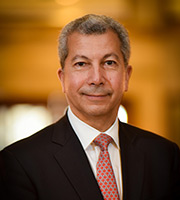On the 150th Anniversary of the New York City Bar Association


By Roger Juan Maldonado, President, New York City Bar Association
“If it be the supineness, the guilty silence of the lawyers, as officers of the people’s courts, which have brought us to our present pass, it is their reawakened public spirit and activity which must help us back to a better state of things.”
– New York Times Editorial, December 16, 1869
Founded five years after the Civil War in a New York City struggling with corruption, the New York City Bar Association is marking a century and a half of advocating reform of the law in the public interest, increasing access to justice, standing up for the rule of law, and being a second home to the legal profession.
The “Association of the Bar of the City of New York,” as it was originally called, grew out of a time echoed by our own, with great income inequality, rapid technological change and globalization leaving many feeling left behind, and a decline of trust in our institutions. In the world’s financial and commercial capital, the Tammany Hall machine of Boss Tweed was better organized and had more bearing on key events than the justice system.
Around the time of an impassioned New York Times editorial imploring the legal profession, essentially, to wake up, a document – handwritten on white, lined, ink-smudged legal paper – was making the rounds among lawyers in the city. It would come to be known as the “Call for Organization”:
The undersigned Members of the Bar of the City of New York, believing that the organized action and influence of the Legal Profession, properly exerted, would lead to the creation of more intimate relations between its members than now exist, and would, at the same time, sustain the profession in its proper position in the community, and thereby enable it, in many ways, to promote the interests of the public, do hereby mutually agree to unite in forming an Association for such purposes.
By February 1, 1870, when the Association convened its first meeting, more than 200 lawyers had signed on.
For generations, the iconic House of the Association has stood at the center of the legal capital of the world, welcoming Supreme Court justices, presidents, governors, mayors, legislators, government officials, civil rights leaders, visiting foreign delegations, and the public.
That original group of 200 has grown to over 24,000 members, including lawyers at every stage of their careers, from solos to big firm and from every practice area, including corporate, nonprofit, government, academia, and the judiciary, as well as law students. An indication of the Association’s influence is that it has hundreds of members beyond New York, across the nation and in 59 countries. Through a comprehensive curriculum of Continuing Legal Education courses, career-development programs, and pro bono opportunities, the City Bar ensures that each generation of lawyers is practice-ready and equipped to give back to their communities.
The City Bar’s 150 committees provide members with a neutral space where they can leave their day-job hats at the door to discuss with one another and with invited guests the most important issues in their areas of interest. And it’s the work of these committees that gives the Association its voice, through the hundreds of reports, statements, amicus briefs, letters to government officials both here and abroad, and public programs they produce every year.
“History doesn’t repeat itself but it often rhymes” is a well-known saying often misattributed to Mark Twain, who did write something like it in his introduction to the 1874 edition of The Gilded Age: A Tale of Today. A look through the City Bar’s timeline bears out the sentiment. Times change while themes endure. An association created to fight corruption will continue to fight it wherever it appears through the years. When an association’s members believe in the bedrock principle that every person deserves a legal defense on a level playing field, they will support that principle no matter whose freedom is at stake. And once an association opens its doors to the profession and to the world, it will continue to prepare the next generation to meet whatever challenges lie ahead.
A century and a half after the Call for Organization, the mission of the New York City Bar Association remains the same: to equip and mobilize a diverse legal profession to practice with excellence, promote reform of the law, and uphold the rule of law and access to justice in support of a fair society and the public interest in our community, our nation, and throughout the world.

